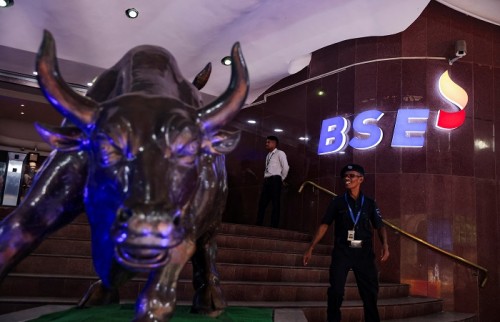Indian shares close lower as banks drag, investors await U.S. CPI data

Follow us Now on Telegram ! Get daily 10 - 12 important updates on Business, Finance and Investment. Join our Telegram Channel
Indian shares gave up early gains to hit a one-week low on Wednesday as banks fell ahead of U.S. inflation data that will likely offer cues on the U.S. Federal Reserve's rate hike trajectory.
The NSE Nifty 50 index ended down 0.57% at 15,966.65, while the S&P BSE Sensex dropped 0.69% to 53,514.15. The benchmarks fell nearly 0.8% earlier in the session to hit their lowest levels since July 6.
The Nifty bank index fell 0.87%, offsetting a 0.9% rise in the fast-moving consumer index.
The market is cautious that the U.S. inflation data might show some stickiness at the higher levels, said Ajit Mishra, vice president, research, Religare Broking.
India's annual consumer inflation remained above the 7% mark, beyond the central bank's tolerance band for a sixth month in a row, official data showed on Tuesday, raising prospects of more rate hikes by the central bank next month.
Earnings from IT companies Tata Consultancy Services and HCL Technologies have not been encouraging, which is also weighing on investor sentiment, Mishra said.
HCL fell as much as 2.5% after the IT services provider missed its quarterly profit estimates.
Bajaj Healthcare Ltd gained as much as 5.3% after the pharmaceutical company said on Wednesday it was entering the highly-regulated opiate processing business.
Shares of credit ratings agency Care Ratings ended up 15.2% on a proposal to buyback shares.
IndusInd Bank shares ended down 3.3% after it clarified that the country's enforcement directorate had filed a complaint against some entities and bank employees in an old remittance transactions case.
Meanwhile, the rupee hit another fresh low against the dollar due to continued foreign portfolio outflows from domestic stock markets and into the safe-haven greenback.
























